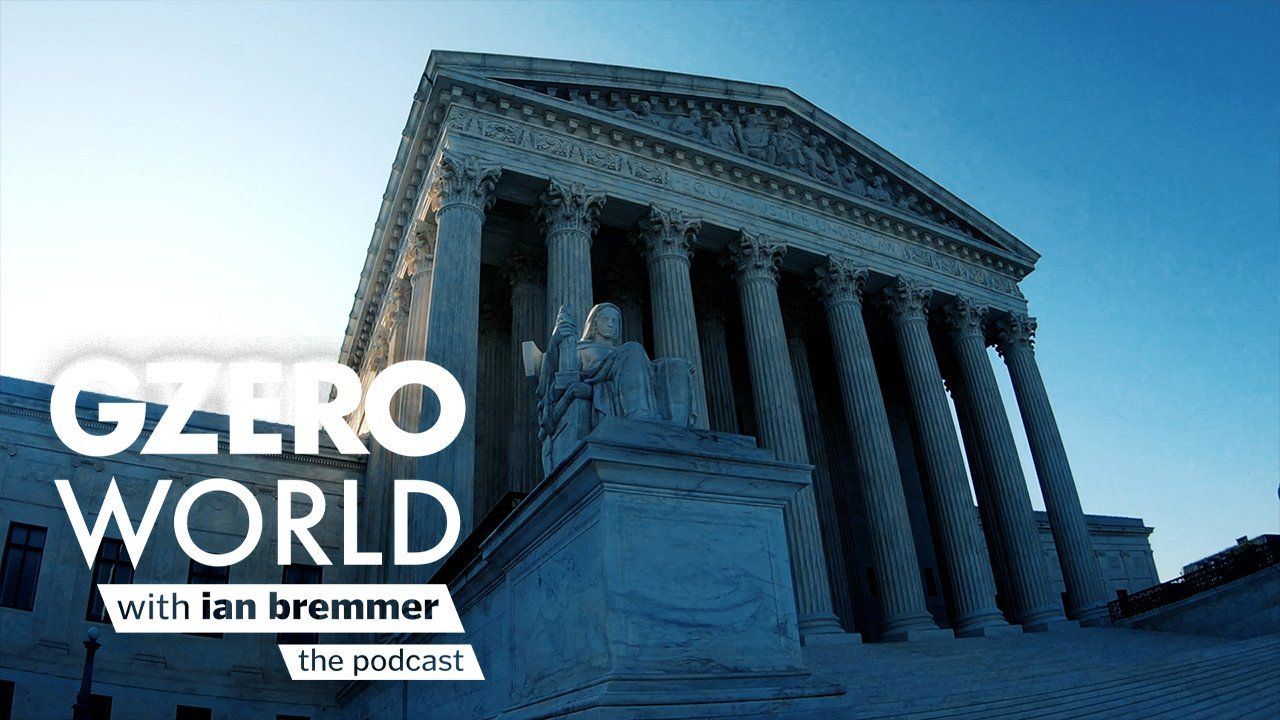GZERO World with Ian Bremmer Podcast
June 14, 2025
Listen: President Trump has never been shy about his revolutionary ambitions. In his second term, he’s moved aggressively to consolidate power within the executive branch—signing more than 150 executive orders in just over 150 days, sidelining Congress, and pressuring the institutions that were designed to check his authority. His supporters call it common sense. Critics call it dangerous. Either way, it’s a fundamental shift in American governance—one that’s unlike anything happening in any other major democracy.
While Congress has largely collapsed into partisan submission, and the DOJ and other power ministries face political purges, one institution still stands: the courts. In this episode, Ian Bremmer speaks with New York Times Magazine staff writer and Yale Law School’s Emily Bazelon about how the judiciary is holding up under pressure, what rulings to watch, and whether the rule of law can survive the Trump revolution.
Subscribe to the GZERO World Podcast on Apple Podcasts, Spotify, Stitcher, or your preferred podcast platform, to receive new episodes as soon as they're published
More For You
Members of the special units of the National Guard and the Secretaria de Seguridad Ciudadana stand guard in front of the Fiscalia General de la Republica, where the investigation into the operation in which Nemesio Oseguera Cervantes, alias "El Mencho", founder and leading head of the Cartel de Jalisco Nueva, was killed, is underway.
Félix Márquez/dpa via Reuters Connect
Most Popular
- YouTube
Europe can no longer rely on the US and must step up to defend its own future, Ian Bremmer reports from the Munich Security Conference.
- YouTube
The Supreme Court has struck down President Trump’s use of the national emergency clause to impose sweeping tariffs around the world. In this Quick Take, Ian Bremmer explains why this ruling was predictable and why it’s a major setback for Trump’s trade strategy.
Prime Minister Narendra Modi waves to the crowd during the opening ceremony at AI Impact Summit 2026 at Bharat Mandapam, in New Delhi on Thursday. Switzerland President Guy Parmelin also present.
DPR PMO/ANI Photo
“For India, AI stands for all inclusive,” reads the billboard outside this week’s AI Impact Summit in New Delhi organized by the Indian government, the first major gathering on the subject in the Global South.
© 2025 GZERO Media. All Rights Reserved | A Eurasia Group media company.
